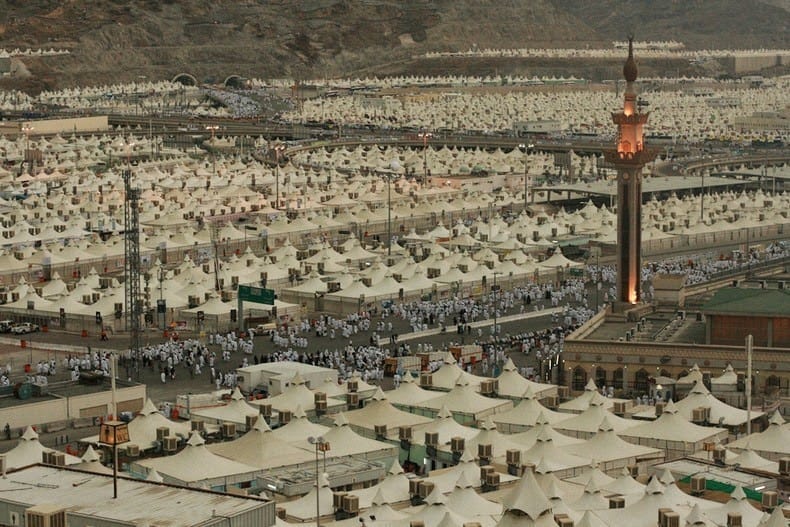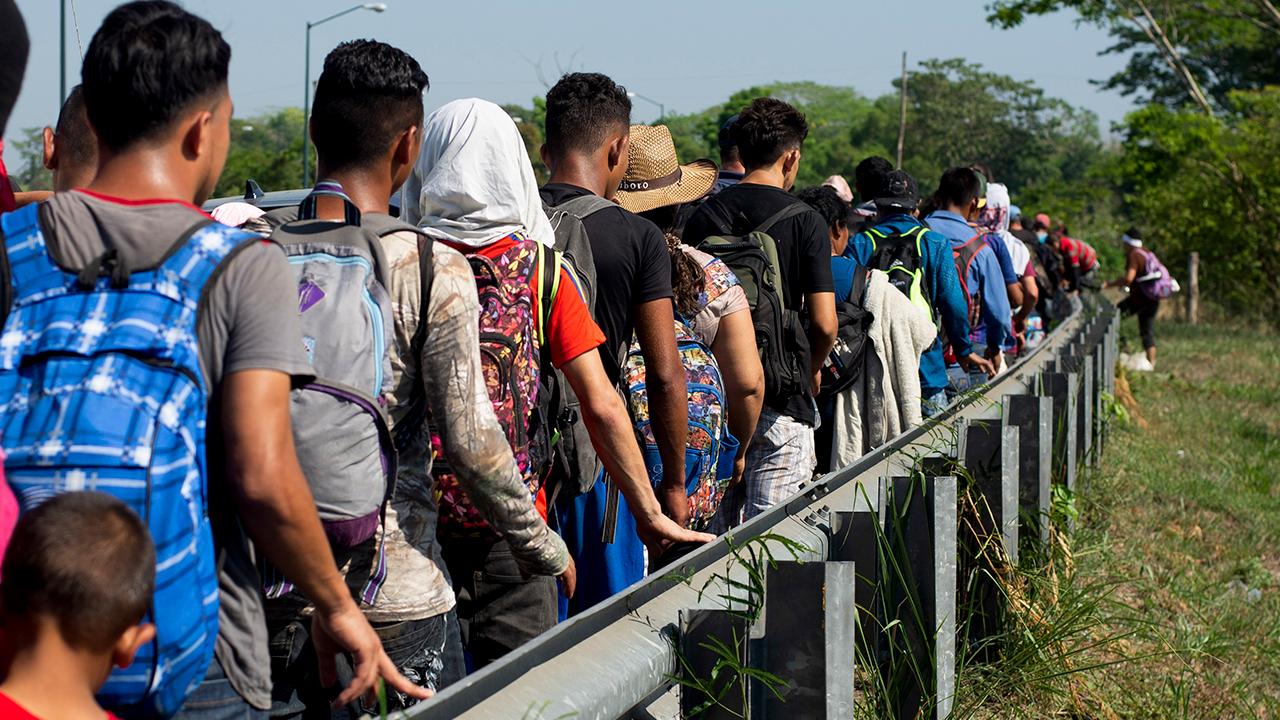I suppose all is well so long as the "gravy train" continues to run. But for that to happen, ordinary working men and women must work longer and harder to stoke the economic engine with more of their hard earned money while leaving ever less money to pay their own bills, put food on the table and put a roof over their heads. Data shows a virtually non-existent middle class compared to just as few generations ago while poverty and homelessness (especially among veterans) grows to unsustainable levels.
To make matters worse for these mayors and governors of Utopia is that other elected representatives and their constituents in other states and towns don't want to play the "kick-the-can-down-the-road" game any longer. Someone, after all, has to be the grown up.
As a result, they've started sending these migrants to all those sanctuary locations with one way bus tickets and a meal card. It's certainly cheaper than forcing their citizens to pay millions just to support the grand ideals of others. If sanctuary cities and states want them, then they can have them along with the responsibility that comes with their words.
But now sanctuary cities and states are rapidly running out of money. They've already had to cut back on public programs which were available for and paid by their citizens. They've started allowing the homeless to live in public parks, doorways, or wherever else they want. They can use public sidewalks as their personal toilets. Local businesses can't keep them out of their stores or from using their restrooms to clean up in. Businesses are even prohibited from detaining shoplifters, thus crime and everything associated with it becomes rampant.
The result is that tax generating businesses are leaving and taking revenue generating jobs with them. So, local mayors and state governors are demanding that the federal government in Washington turn up the money faucet in order to help them continue to defy federal immigration laws and reinstate public programs. How's that for having chutzpah?No one is quite sure about how many illegal immigrants have been shipped around the country, but it's at least around 100,000 if not more. Of course, you have to feel sorry for these individuals---the men, women, and children---for being moved here and there like some pawn on a chess board, to be used and discarded. After all, most are simply coming here for work and hopefully a better life.
But nevertheless, it's fair to assume that they are aware of the risk and what they were attempting to do was illegal. Breaking U.S. immigration laws was little different from breaking immigration law in their native homeland, except that the repercussions were almost always far more severe.
We can only assume that these individuals have been convinced themselves that they were different. That they could evade authorities and slip across the border undetected. Perhaps long the way one of those church organizations who help individuals break the law could help them. Maybe too they could help shield from the border patrol, ICE, and others. All they need to do was make their way undetected to one of those sanctuary states or cities.
Hopefully someday, down the road, they can stop looking over their shoulder, stop running and hiding, and just settle down. Perhaps, if they're lucky, some U.S. President, while trying to curry support from certain voters, will grant them amnesty like President Reagan or President Obama did. Until then, they remain political pawns and will continue to live their life like anyone else on the run. But until then, that's a lot of hoping, wishing, and stress to go along with those "maybes" and "perhaps".
We've all seen those signs which read "No Human is illegal". It seems they're always at every pro-amnesty or pro-migration protest. While it's true that "no person is illegal", on occasion their actions are. That's why we have laws and a judicial system to enforce those laws.The countries from where many of these migrants embark from, be they in Latin America, Asia, Africa, Europe, or the Middle East, all have similar immigration laws. just like the United States does. The main difference is that the punishment for breaking their migration laws often far more severe than ours, and yet why does no one complains or speaks out against those?
Nations have defined borders and the right to regulate who crosses those borders. It's one of the cornerstones to national sovereignty which have existed for over five millennia, but today there are those who would deny us that right. Why should we not have that same right of national sovereignty as any other country? Why should other nations be allow to have borders and laws to enforce those borders but America's be porous?
Europe is prime example of what happens when countries fail to secure their border. The EU has a "open border" policy which allows anyone from anywhere in enter their country regardless of any other factor. As a result, they are being overwhelmed by migrants from the Middle East and Africa. Most are young, male, poorly educated, and Muslim. The result has been a serious clash of cultures.
Many of these individuals are under the false impression that they are "entitled" to practically everything; that the state has to provide them with whatever they want. As a result many have become a serious drain on the nation's safety net. There have been numerous clashes over culture traditions, and values which has its basis in Christianity and the Enlightenment. Crime has also become as serious matter with assaults, rapes, and robberies leading the way.
Meanwhile, oil rich nations like Saudi Arabia, the UAE, or Kuwait have seen virtually none of these migrants despite sharing similar traditions, values, culture, and language as many of these migrants. They even share the same faith--- Islam.Saudi Arabia alone has enough tents with air condition to house and support three million migrants, and yet they remain empty. So, why aren't these millions of migrants from Syria, Iran, Iraq, Afghanistan, or Africa not going there?
For one, these Arab nations have strong border security. Anyone illegally crossing their borders are dealt with severely. They also have very restrictive immigration laws. While they do allow individuals to apply to come and work there, long term settlement is very rare.
In addition, these countries are highly selective in who they award temporary work permits to, preferring individuals with good educations and no criminal records, and while they have a very liberal social safety net, they actually expect people to follow the law and work. Imagine that! As a result, Europe is getting the dregs I suppose.
The U.S. may be facing a similar situation. Very few of those seeking to come illegally aren't well education. The overwhelming majority have a minimum education. Many have little about a basic level. In addition, most of these individuals are low skilled or unskilled. They're coming for any low level job they can find, which is unfortunate since it perpetuates the poverty they're trying to get away from.
In today's high tech world where companies (and employees) compete on a global basis, what the United States desperately needs are doctors and nurses, engineers, data scientists, software developers, and AI specialists. There is, however, a demand for skilled and licensed electricians, plumbers, welders, HVAC specialists, data systems service technicians, and carpenters thanks to the closure of trade and technical schools several years ago.
So, what does that mean for us? While most of the illegal immigration is coming from Latin America, there are strong indications that we're beginning to see more coming from Asia (especially China and North Korea), India and Ski Lanka, the poorest of the African nations such as Somalia, the Ivory Coast, and Sierra Leone, as well as the Middle East, particularly Afghanistan, Iran, Iraq, and Syria.Among this latter group, there has been several arrest by Mexican authorities of individuals with connections to terrorist organizations such as Al Qaeda, Boko Haram, and ISIS. These individuals were caught while trying to blend in with the migrant caravans. While there's no doubt that there are likely terrorist cells already here, what we don't need are more.
Presidents, Congress, and others of both parties have been promising the American taxpayer for decades that they will "do something" to secure our borders, especially our southern border which is a porous as Swiss cheese. Thus far, whether you like him or not, only one--- Donald Trump----actually made a serious effort, and he meet with unbridled resistance from both political parties, the media, and financed special interest groups with a vested interest in keeping the border open.
We cannot continue to allow our borders to remain open. Not only are these serious national security issues, they represent a serious threat in the form of diseases we're no longer vaccinated again and viruses like COVID, while the influx also puts as serious strain on our national safety net just as in Europe. And while we need to fill low level jobs, what we seriously need are engineers, doctors, and high tech specialists. Anything less, will only continue hasten America's decline as a world leader.
Finally, no more "anchor babies". To many women have used their pregnancies and the Citizenship Clause of the 14th Amendment as a way to circumvent immigration laws to remain in the United States. The 14th Amendment, which was adopted in 1868, was never intended to be use in that way. It was intended to confer citizenship on all former slaves. Currently, any child born on U.S. soil automatically gains birthright citizenship. That right extends to the child's parents as well.
In the interim, the United States needs to accept responsibility for its part in creating the situation in the first place. We need to stop trying to remake other nations over in our own image. Not everybody wants to be America when it grows up. Hell, given our broken political system, even we don't even want to be America anymore!We need to stop throwing our political, economic, and military weight around and intervening in other countries elections. That also includes imposing sanctions and embargoes. If they want to freely elect a socialist, republican, or whatever form of government, that's their business not ours (as an aside, let's stop installing Far Right wing military juntas too okay?). Why don't we act like a world leader and come to a civil solution?
If you enjoyed the article,
please consider passing it along to others and don't forget to subscribe. It's
free! Lastly please be sure to "like" us on whatever
platform you use to read anotheropinionblog.com. It helps beat
the algorithms and keeps our articles in circulation. Thank you!
A few countries take responsibility for most of the world's refugees
US to reopen border crossings as illegal immigration drops
Migrant crisis explained: What's behind the border surge
CFR: Ten Graphics That Explain the U.S. Struggle WithMigrant Flows in 2022
What Are Sanctuary Cities and Why do they Exist?
Saudi Arabia Has Enough Tents With AC To House 3 MillionPeople, And Yet Has Taken In ZERO Refugees









.jpg/132px-Santana_Row_(1).jpg)











